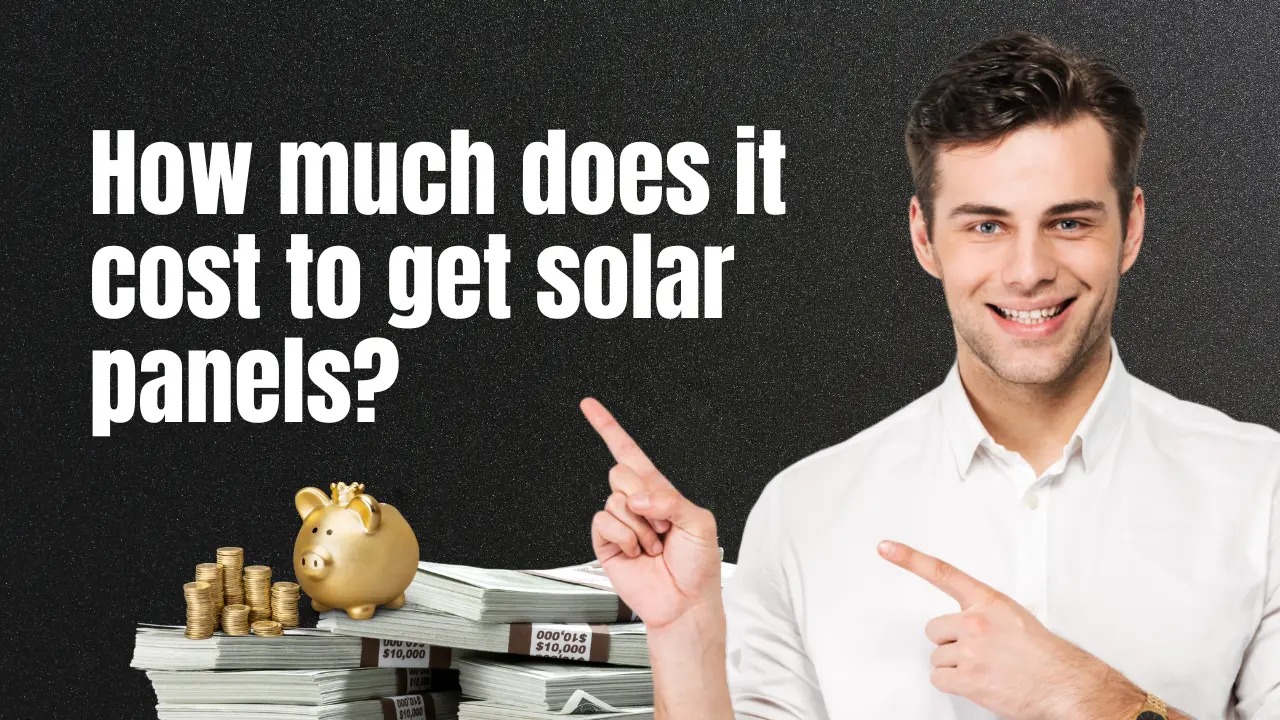Solar energy has gained immense popularity as a clean and sustainable source of electricity. Homeowners across the globe are increasingly interested in harnessing the sun’s power by installing solar panels on their properties. Nevertheless, before embarking on a solar panel installation project, it’s essential to understand the costs involved. The cost of solar panels can vary significantly based on various factors, including the system’s size, location, equipment quality, and available incentives. We will delve into the factors that influence the cost of solar panels, enabling you to make a knowledgeable decision about investing in solar energy for your home.
Factors Affecting Solar Panel Costs
Diverse factors contribute to the cost of solar panel installation. These factors can alter your location, energy needs, and personal preferences. Here are the key elements that influence the cost of going solar:
- System Size
The size of the solar panel system you install is one of the most noteworthy elements influencing the cost. Larger systems with more solar panels can generate more electricity and typically cost more to install. The size of the system is often measured in kilowatts (kW) or megawatts (MW), with larger systems generally costing more.
- Quality of Equipment
The quality and efficiency of the solar panels and related equipment you choose can impact the overall cost. High-quality solar panels and inverters are more expensive but can propose better performance and durability. While it may be tempting to opt for lower-cost equipment, investing in higher-quality components can pay off in the long run through increased energy production and reliability.
- Location and Sunlight Exposure
The geographic location of your property plays a paramount role in solar panel cost and efficiency. Areas with more sunlight exposure throughout the year are ideal for solar energy production. In regions with ample sunlight, you may require fewer solar panels to generate the desired amount of electricity, which can reduce installation costs.
- Roof Condition and Orientation
The condition of your roof and its orientation relative to the sun can impact installation costs. If your roof needs repairs or modifications to accommodate solar panels, these additional expenses must be factored into the overall cost. A roof already in good condition and properly oriented for maximum sunlight exposure can result in lower installation costs.
- Incentives and Tax Credits
Government incentives and tax credits can enormously lessen the cost of solar panel installation. These incentives vary by location and include federal, state, and local programs. The Federal Investment Tax Credit (ITC) is one of the most well-known incentives, proposing a percentage reduction in the cost of solar installation. Be sure to research the available incentives in your area to maximize cost savings.
- Installation Labor Costs
The labor costs associated with installing solar panels can alter depending on the complexity of the project and the local labor market. Experienced and certified installers may charge higher rates, but their expertise can ensure a successful and efficient installation. It’s paramount to obtain multiple installation quotes and compare costs.
- Net Metering and Grid Connection
The availability of net metering and the cost of grid connection can influence the general cost of solar energy. Net metering permits you to sell excess electricity generated by your solar panels back to the grid, offsetting your energy costs. The cost of grid connection, including permits and equipment, can vary by location and utility provider.
- Financing Options
The way you choose to finance your solar panel installation can also impact costs. Options include purchasing the system outright, leasing, or entering into a power purchase agreement (PPA) with a solar provider. Each financing strategy has its own cost structure, which can impact the total cost of going solar.
- Calculating Solar Panel Costs
To calculate the cost of solar panel installation for your specific situation, assess your electricity consumption and past utility bills to understand your energy usage. Determine the appropriate system size based on your energy needs and available space, carefully selecting solar panels, inverters, and components, considering factors like efficiency and warranties. Evaluate the annual sunlight exposure in your location, research available incentives and tax credits, and obtain comprehensive installation quotes from multiple solar professionals, ensuring all associated costs are included. Consider financing options and their associated costs, and calculate the estimated payback period to assess when your energy savings will offset the installation expenses. Lastly, explore region-specific incentives and programs to further reduce your solar panel costs, ultimately making a well-informed decision regarding your solar investment.
Solar panel installation costs vary widely based on several factors, including system size, equipment quality, location, incentives, labor costs, and financing options. To determine the most accurate estimate for your specific situation, assessing your energy needs, choosing the right equipment, and obtaining multiple installation quotes are crucial. Maximize cost savings by taking advantage of available incentives and financing opportunities. Investing in solar panels can provide a reliable and clean source of electricity while potentially reducing your long-term energy expenses, making it a worthwhile consideration for homeowners committed to sustainability and energy efficiency. To delve deeper into the topic, it’s crucial to explore the various factors that affect the costs associated with solar panel installation.

